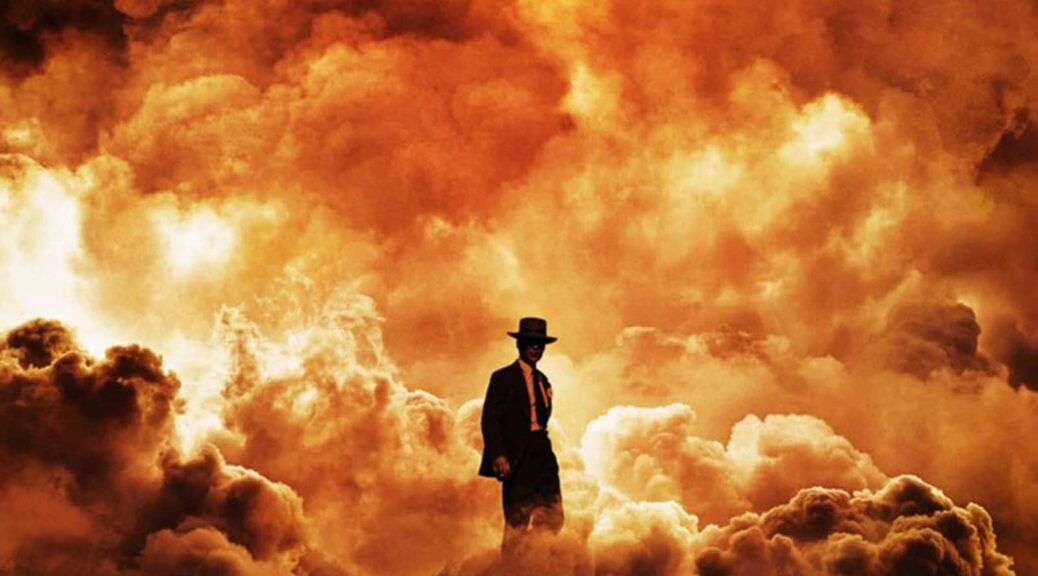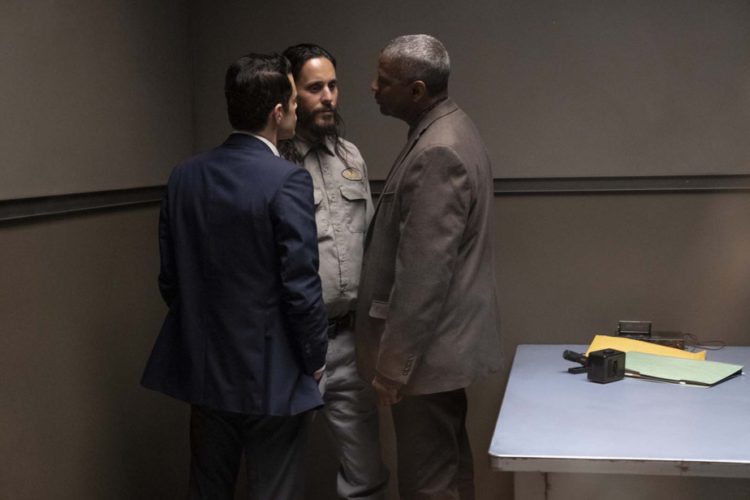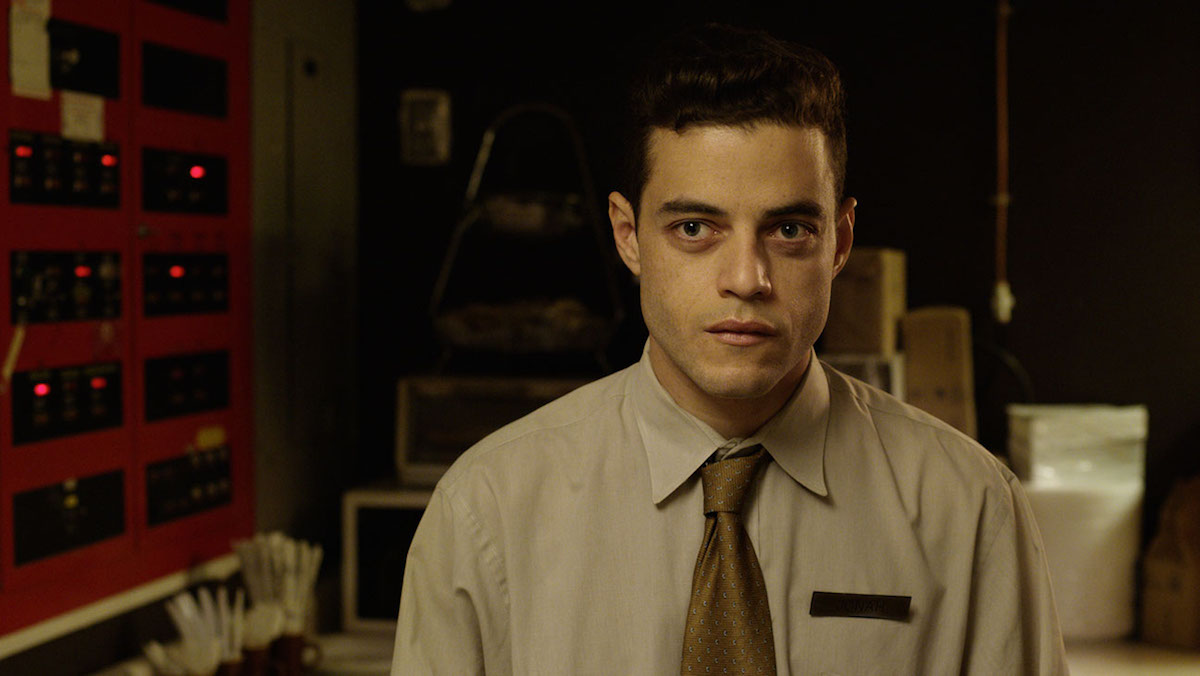Oppenheimer
by George Wolf
I love that “Barbenheimer” has become a thing. Why are people so excited that two films open in theaters on the same weekend? The polar contrast of tones is certainly a fun mashup, but it’s also the confidence we have in two uniquely visionary filmmakers.
Christopher Nolan reportedly became invested in making a film about “the father of the atomic bomb” when Robert Pattinson gave Nolan a collection of J. Robert Oppenheimer’s speeches. In adapting two source books, writer/director Nolan gives Oppenheimer an engrossing IMAX treatment that serves up history lesson, character study and mystery thriller during three unforgettable hours.
Cillian Murphy is simply mesmerizing and absolutely award-worthy as Oppenheimer, who – years after his Manhattan Project delivered the bomb that ended WWII – is facing the possible loss of his security clearance and thus, career. With his wife Kitty (Emily Blunt) seated nearby, Oppenheimer endures grueling interrogation on his past associates and activities from an Atomic Energy Commission security board led by Roger Robb (Jason Clarke) and Gordon Gray (Tony Goldwyn).
In the film’s first two acts, Nolan uses this questioning as the anchor to chart Oppenheimer’s rise through academia to become not “just self important, but actually important.” On the campus of Berkeley, he embraces revolution in both physics and the world, enthralling his students, supporting “left wing causes” and carrying on an intense affair with avowed communist Jean Tatlock (Florence Pugh) before being hand-picked by no-nonsense General Leslie Groves (Matt Damon) to lead the team tasked with inventing a nuclear weapon before the Nazis do.
From the outset, Nolan and Murphy craft Oppenheimer as an endlessly fascinating creature, a man unable to turn off his mind from constantly questioning beyond this world. Murphy never shrinks from the close-ups that pierce Oppenheimer’s soul, and his body language and manner are often awkward and brusk, revealing an intellectually tireless man with little regard for alienating those not on his level, including AEC Chairman Lewis Strauss (Robert Downey, Jr., never better).
But Oppenheimer’s commitment is total, as is Nolan’s. With strategic use of black and white (an IMAX film stock developed exclusively for the film) to contrast cinematographer Hoyt Van Hoytema’s eye-popping detail, Nolan utilizes impeccable visual storytelling that enhances his script’s ambition without overshadowing it. Ludwig Göransson’s score dances beautifully with production design from Ruth De Jong, totally immersing us in the manufactured town of Los Alamos, where three years of development finally led to a successful bomb test (a breathless sequence that alone should land sound designer Randy Torres an Oscar nod).
For two hours, the historical tale is assembled through precision and care by a master craftsman with the finest tools at his disposal (including a spotless ensemble that also includes Kenneth Branagh, Rami Malek, Casey Affleck, Tom Conti, Matthew Modine, Olivia Thirlby, David Dastmalchian, James Remar and Benny Safdie), and then Nolan digs into the human failings, moral ambiguities and philosophical grappling that surround a man and his mission.
As Oppenheimer realizes that “genius is no guarantee of wisdom,” and his superiors only want to expand America’s nuclear arsenal, the film’s final act becomes a dizzying mix of JFK, Amadeus and The Tell Tale Heart.
Haunted by the devastation the bomb brought to both the “just and unjust,” Oppenheimer ignores his wife’s pleas to fight back as his character is assassinated, and a naive senate aide (Alden Ehrenreich) starts to piece together the puzzle about who is pulling the strings.
As the film races toward a tense and satisfying reveal, some of the dialogue does flirt with needless explanation, but these sensational actors never let a word of it land as completely false.
Much like any film of this nature, Oppenheimer takes its liberties and leaves room for further study. But Nolan takes you inside the personal journey of one of the most important men in history, with resonant and challenging lessons on hubris, envy, blind faith and the search for redemption. And by the end of hour three, he leaves you drained but thankful for the experience
There’s no Barbie here, but you will find a cinematic dream world with so very much to offer.










